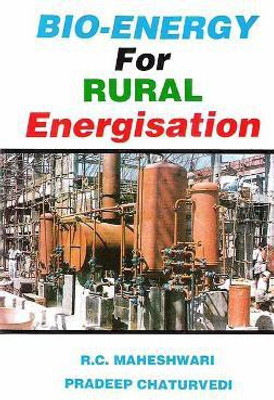Bio Energy for Rural Energisation First Edition(English, Hardcover, Maheshwari R. C.)
Quick Overview
Product Price Comparison
Environmental awareness after the Earth Summit (in June 1992) has necessitated the developed countries to focus attention on bio fuel. Biomass, at one time, considered to be the fuel of the poor in the developing countries has now become an important source of energy for the developed world as well. Its role in building economy while preserving environment has attracted large allocations for technology adaptation and technology development leading to more efficient biomass stock conversion . The Global Environment Facility of the World Band, the United Nations Development Programme and the United Nations Environment Programme have started allocating large funds towards initiating major projects and programmes based on biomass in the developing countries. Thus, currently the bio fuels have the national and international support and funding. All that is needed is the developed of site specific commercially viable and socially acceptable packages of technology for different parts of the world. India, with its vast technical and industrial infrastructure, has an excellent opportunity whereby through appropriate policy interventions, it can have cost-effective utilization of bio fuels to replace atleast 3 million tonnes of fuel oil and 2000 MW power generation installed capacity by the year 2000. The future bio fuel revolution in India shall be in terms of higher penetration of bio energy resources in the industrial and urban sectors (without disturbing its role in the rural sector). To attain such a revolution, the government shall have to cover the initial technology introduction risk so that the industry develops and matures. A long term policy and its effective implementation holds the key to bio fuel use in India. About the Author Pradeep Chaturvedi, Chairman of the Institution of Engineers (India), Delhi State Centre is a Mechanical Engineer and an energy and environment expert. He has been involved with sustainable development issues, mainly the energy policy and planning and implementation of environment friendly sustainable energy projects for over three decades in India and other Asian and Pacific countries. As a Member of the Perspective Planning Group of Planning Commission, preparing Development Vision 2020, he contributed 'India's Energy Vision 2020'. He has been actively involved with the formulation of Energy Conservation Act 2001 and the Electricity Bill 2001. Mr. Chaturvedi has been involved with the Studies Programme of the World Energy Council since 1983. His understanding of energy issues of the South Asia Region, in the global context, has been widely appreciated. Mr. Chaturvedi was deeply involved with the preparatory phase of the World Summit of Sustainable Development. He is also involved in the follow-up phase. Mr. Chaturvedi is Vice-Chairman of the UNESCO sponsored World Renewable Energy Network; and Vice Chairman of the World Environment Foundation, both based in UK; and President of the Bio Energy Society of India. He is also a Visiting Faculty at IIT, Delhi. Mr. Chaturvedi has authored six and edited 25 books on Energy Management and Sustainable Development. These books are widely referred to understand the situation in the country.


